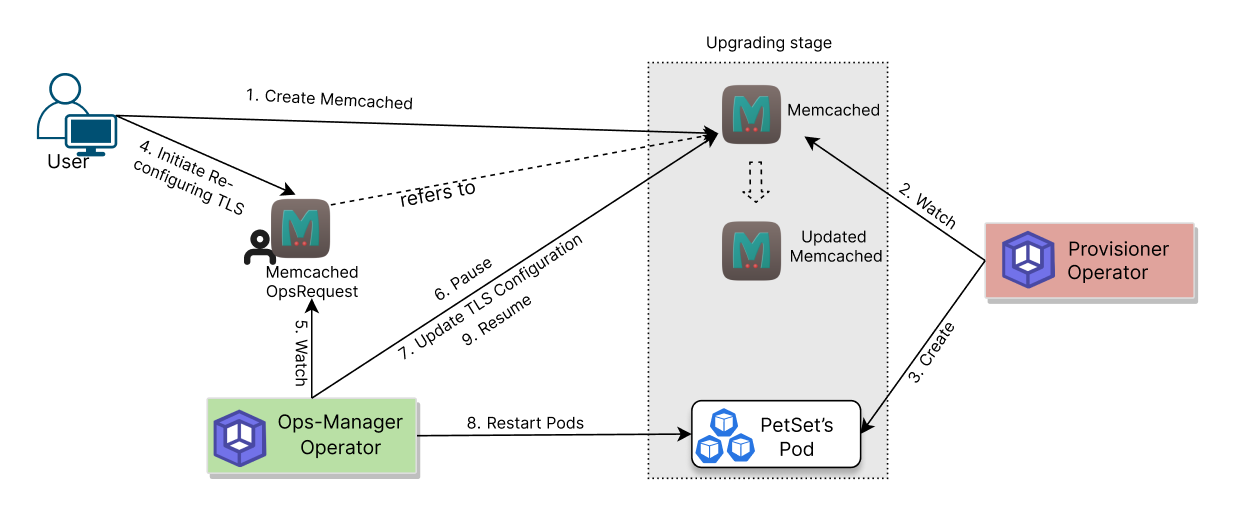You are looking at the documentation of a prior release. To read the documentation of the latest release, please
visit here.
New to KubeDB? Please start here.
Reconfiguring TLS of Memcached Database
This guide will give an overview on how KubeDB Ops-manager operator reconfigures TLS configuration i.e. add TLS, remove TLS, update issuer/cluster issuer or Certificates and rotate the certificates of a Memcached database.
Before You Begin
- You should be familiar with the following
KubeDBconcepts:
How Reconfiguring Memcached TLS Configuration Process Works
The following diagram shows how KubeDB Ops-manager operator reconfigures TLS of a Memcached database. Open the image in a new tab to see the enlarged version.

The Reconfiguring Memcached TLS process consists of the following steps:
At first, a user creates a
MemcachedCustom Resource (CR).KubeDBCommunity operator watches theMemcachedCR.When the operator finds a
MemcachedCR, it creates required number ofPetSetsand related necessary stuff like appbinding, services, etc.Then, in order to reconfigure the TLS configuration of the
Memcacheddatabase the user creates aMemcachedOpsRequestCR with the desired version.KubeDBEnterprise operator watches theMemcachedOpsRequestCR.When it finds a
MemcachedOpsRequestCR, it halts theMemcachedobject which is referred from theMemcachedOpsRequest. So, theKubeDBCommunity operator doesn’t perform any operations on theMemcachedobject during the reconfiguring process.By looking at the target version from
MemcachedOpsRequestCR,KubeDBEnterprise operator will add, remove, update or rotate TLS configuration based on the Ops Request yaml.After successfully reconfiguring
Memcachedobject, theKubeDBEnterprise operator resumes theMemcachedobject so that theKubeDBCommunity operator can resume its usual operations.
In the next doc, we are going to show a step-by-step guide on updating of a Memcached database using update operation.



































